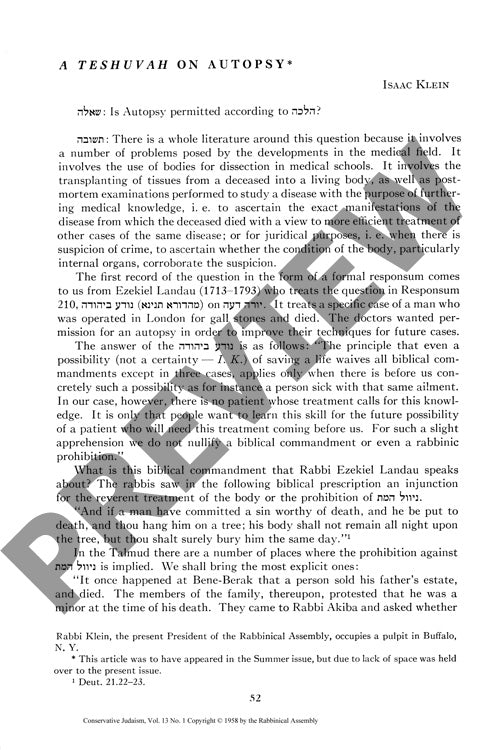A Teshuvah on Autopsy
Couldn't load pickup availability
This responsum examines the permissibility of autopsy according to Jewish law (halakha), addressing a complex question that has generated extensive rabbinic literature due to developments in medical practice. The study analyzes historical precedents beginning with Ezekiel Landau's 18th-century responsum, which prohibited autopsy based on the biblical commandment against dishonoring the dead (nivul hamet), derived from Deuteronomy 21:22-23. The methodology involves comprehensive examination of talmudic sources, major rabbinic authorities, and contemporary applications. Early authorities including Moses Sofer maintained strict prohibitions, permitting autopsy only when a patient with the same disease was immediately present who could benefit from the procedure. However, more recent scholars, particularly Hayyim Hirshenson and Ben Zion Uziel, adopted more permissive approaches, distinguishing between acts performed to dishonor the deceased versus those conducted for the honor of the living (kavod hachayim). The analysis reveals evolving interpretations where potential saving of life (pikuach nefesh) overrides prohibitions against dishonoring the dead when performed respectfully for medical advancement. The study concludes with examination of the formal concordat between Israel's Chief Rabbinate and Hadassah University Hospital, which permits autopsies in specific categories including legal requirements, diagnostic necessity, life-saving potential, and hereditary disease investigation, provided proper burial procedures are maintained for all removed organs.

More Information
-
Physical Description
-
Publication Information
Published 1958
ISBN
-
Publication Credits
Isaac Klein

